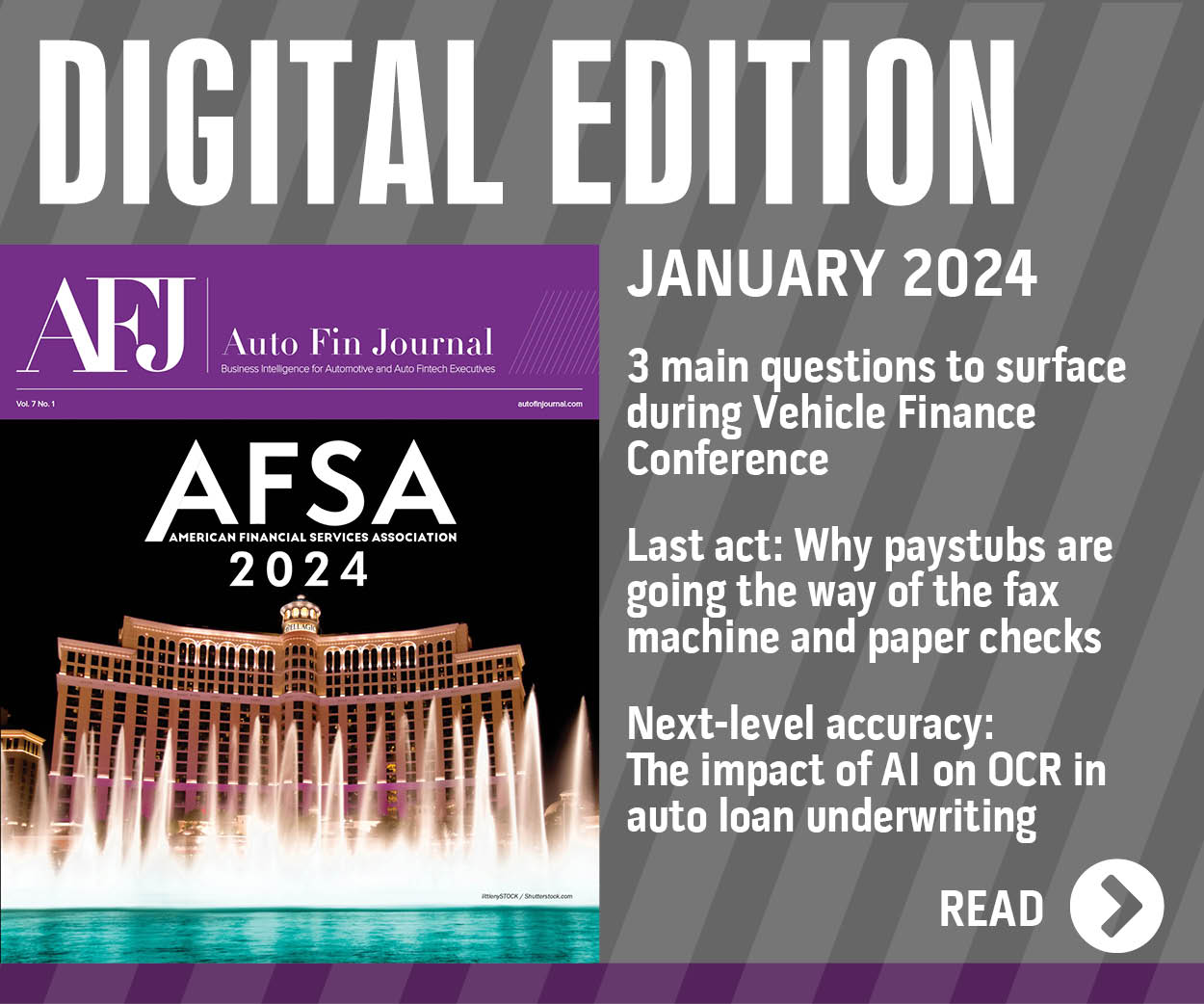Study: Blockchain has ‘huge potential’ for auto, but readiness varies

According to an international IBM study, about three-fifths of auto executives think blockchain will disrupt the car business by 2021, but the findings of the study also show that the industry might not yet be prepared.
Still, next year could show some growth in blockchain usage in the auto industry, a business where “huge potential” exists for this technology.
“We are in the very early stages for blockchain in auto, but there lies huge potential,” said Ben Stanley, who leads automotive research for IBM's Institute of Business Value, in IBM's news release on the study.
“In 2019 we expect to see blockchain start to really take off, particularly with secure data sharing, car and ride share transactions and in-vehicle marketplaces,” he said.
The IBM Institute for Business Value collaborated with Oxford Economics to develop this study, titled “Daring to be first, How auto pioneers are taking the plunge into blockchain.” They surveyed 1,314 auto execs with both OEMs and suppliers throughout 10 business areas and 10 countries.
Despite their finding that 62 percent of these execs think blockchain will have a disruptive impact on auto by 2021, very few of their companies “are ready for blockchain or have a greater perception that blockchain solutions are ready for commercial use,” IBM said in the news release.
Many do appear to see its potential use in auto, though. Over half (55 percent) of OEMs say they think blockchain usage could help clean up information in their business networks, with 47 percent of suppliers saying the same.
And again, there is great potential for this technology in the car business as Stanley noted. Finance, supply and mobility services were identified as top areas for blockchain’s positive impact in auto.
The study also finds that blockchain for secondary market (auto parts) has particularly strong potential in China, Germany and Mexico.
Fleet management could be ripe for blockchain usage: In each country involved with the study, at least half of the OEMs there think this will be an area of “high impact” for blockchain.
Over half (54 percent) of the executives believe new business models could sway how much is invested in blockchain.
'Pioneers' on cutting-edge of blockchain
IBM also touched on what it called “auto pioneers” within the survey group. Representing 15 percent of respondents, these parties are “forging ahead with blockchain,” IBM said, with 54 percent of these pioneers planning on launching commercial blockchain networks at scale within three years.
Meanwhile, just 21 percent of other OEMs (outside of the pioneers) and 4 percent of other suppliers said the same.
Ninety-five percent of auto pioneers intend on making more aggressive blockchain investments in the next three years, IBM said. That compares to 56 percent of other OEMs and 26 percent of other suppliers.
And many of these parties are pointing to new business models having a big influence on blockchain investments: areas like fleet management, mobility-as-a-service, in-vehicle marketplaces, loyalty programs, usage-based models and alternative ownership.
Sixty-eight percent of pioneers believe blockchain investments will be influenced by fleet management; 61 percent by mobility-as-a-service, 58 percent by in-vehicle marketplaces; 57 percent by loyalty programs; 53 percent by usage-based models; and 49 percent by alternative ownership.
Mobility's use of blockchain
Speaking to mobility, in particular, one organization known as the Mobility Open Blockchain Initiative is investing how blockchain could bring stronger safety, affordability and acceptance to mobility.
MOBI touts partners like BMW, Ford, Shift, Faraday Future and General Motors, and sponsors like KAR Auction Services, RouteOne and IBM, according to its website — among many others.
“The auto industry is in a position that it needs to gain efficiencies right now,” MOBI chief executive and founder Chris Ballinger said in the IBM study’s news release.
“With its promise of making mobility safer, greener and more accessible, blockchain has the potential to strengthen trust and collaboration among businesses, consumers and even vehicles,” Ballinger said.
Separate from this study and announcement, a company called Dealer Market Exchange — an enterprise business mobility solutions platform for automotive that is also known as DMX — announced a product Tuesday called VINBlock that involves blockchain.
Described as “blockchain for everyday car business,” VINBlock aims to use vehicle identification numbers to “track the lifetime activity of any vehicle,” the company said.
“Our VINblock permanent, shared ledger, based on Hyperledger Fabric blockchain technology, provides a critical value-add for building a foundation of connected mobility for OEMs, dealers and consumers to conduct business well into the 21st century,” DMX chief executive and co-founder Jason Bennick said in a news release.
“As we innovate next-generation solutions across automotive, we’re striving to create new channels that can operate faster and more efficiently than most everything out there, and in a new, low-cost and fully trusted, secure environment.”
The VINblock permanent shared leger of these numbers is rooted in Hyperledger Fabric permissioned blockchain and related technologies, DMX said. It is designed to keep tabs vehicle identity plus ownership changes and ownership status within the company’s markets.
DMX co-founder and technology head Wes Reid said: “Blockchain is just one of our key technologies along with automation, AI, analytics, IoT and intelligent API’s that we’re integrating in our mobile, cloud platform and solutions that deliver strategic advantages for all our customers.”

 View The Latest Edition
View The Latest Edition

